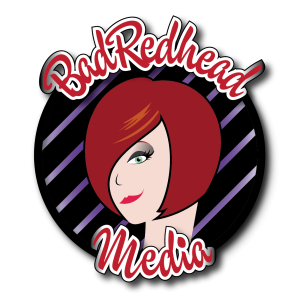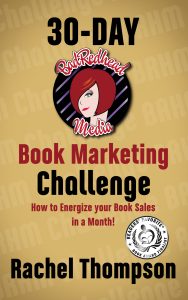Difference Between BetaReaders and ARC Readers: What You Need To Know by @MelissaFlicks
Please welcome Melissa Flicks, my cohost for #BookMarketingChat, author assistant extraordinaire, and general whirlwind. Melissa explains the difference between betareaders and ARC readers, and why it’s important writers know the difference.
During our latest #BookMarketingChat, we briefly touched on the topic of betareaders and ARC readers. Since we didn’t have time to discuss them in detail during the chat, I’ll break down what these two types of readers are, why you need them as a part of your publishing team, and where they fit in your marketing plan.
What is a Betareader?
A betareader is a (non-professional) reader who receives a pre-edited (NOT first draft- give them your best writing!) copy of your work. Ideally, this person will be someone who is in your target audience and/ or who reads a lot of books in your genre.
Once the betareader has read your work, they can provide helpful insight on how to improve your important elements of your story: characters, setting, and plot (point out plot holes and continuity issues). They can also provide suggestions for spelling, grammar, and fact-checking.
You’ll want to begin gathering a list of betareaders early on and send your work to them during the revision stage.
A good place to find betareaders is to reach out on your own social media platforms (if you’re planning on releasing a book, you should already be developing a strong social media presence). Send out a few tweets and Facebook/G+ posts asking if anyone would be interested in providing feedback for your work-in-progress periodically, and make a list to keep track. Gather their emails and stay in touch!
Many authors I know recommend using reader communities such as Wattpad for betareaders. You can upload your work to the site and get some great feedback there (as well as building a fanbase).
Let’s move on to ARC readers.
What is an ARC Reader?
An ARC (Advanced Review Copy) reader is a person who receives a pre-published copy of your book (usually after final editing, but before proofreading). Also referred to as “early reviewers,” ARC readers are given a free copy of your book in exchange for leaving an honest book review (typically on Amazon and/or Goodreads) once the book is available for distribution.
Again, you’ll want to begin a list of ARC readers early on (at least eight weeks prior to your anticipated book launch date).
Where do I find ARC readers?
There is no rule on who you can ask to review your book- ask your friends, family (though we recommend avoiding having family and friends review your book), book club, fans, book bloggers… anyone who you think might be interested in reading and reviewing your book. You can have readers sign up via Google Forms, mailing list subscription, direct email… whichever way you want to collect their information. Just be sure to keep track of who signs up so you can update and follow up as the launch date gets closer.
Keep in mind, you might ask 100 people to review your book and get a fraction of those people to say “yes.” (Rachel says a typical response rate is maybe 10%.) Of those maybe 75 people who agree to review your book, there might be 25 who actually do, if you’re lucky! It’s a tedious process, but if you’re starting your book launch with 25 positive reviews right off the bat, it’s totally worth it! Be sure to send out a friendly reminder a week before your book launches to your list of ARC readers to have their reviews ready to post.
Street Teams
The subject of a future #BookMarketingChat, most authors create private street team groups on Facebook where they can add their ARC readers. This is an easy way to get updates and reminders sent out however, many posts either get buried in a sea of newsfeed posts or they are completely unseen based on what Facebook decides to show their users that day.
Alternatively, you can utilize mailing lists to distribute your ARC and send reminders to your ARC readers.
Newsletters
Keep in mind, according to FCC guidelines, you can’t randomly send out emails to people asking them to review your book (well, you can, and many people do; but it is considered spam and they can be fined if reported). You can learn more about email and newsletter best practices by reading Barb’s article, as well as this excellent article from Written Word Media here.
For more information about #BookMarketingChat, please connect with us on Twitter and Facebook, and read all about it here on Rachel’s blog!
Connect with Melissa here and hire her! She’s amazing. 
photo courtesy of unsplash
[blurbit]


I regret not launching my short story with reviews, but it’s not too late is it? Thanks for an educational post.
and nope, never too late. You can contact a company like ReadingDeals.com to contact readers, bloggers, and reviewers for a nominal admin fee — the reviews are honest and not guaranteed to be positive, which makes it fair and ethical.
Join reader’s groups, book clubs, connect with book bloggers (go to http://thebookbloggerlist.com) and find bloggers in your genre. Take a look at the books by Barb as I mention in my article also.
I clicked on that link and it DID NOT send me to a book blogger! Twice! (click on it) I need to scrape my eyebrows off the ceiling, excuse me….Back now, thank you for the advice.
Was surprised to see the picture you used for this entry because it is the same (public domain) image I used to represent the main character in my last novel. His name is Cliff. He looks a little bit like me – if I were to lose 30 years, 30 lbs., and 30% of my hair. LOL! Good post, BTW, useful and succinct. Thanks
Ha, thanks for commenting, Jonah. The image is from Unsplash.com, which supplies hi-res royalty-free images (love the site!).
Glad you found the post helpful. Melissa is awesome.
Great post. I do, however find it ‘difficult’ when offered a book for an ‘honest review’. I know the writer SAYS that’s what they want…but what they mean is a nice 4/5 star one! Sometimes, that just isn’t possible ..and I have had writers turning stroppy when I’ve said (privately) that I’d only be prepared to give it 3 stars (still an ‘OK’ assessment). It’s good to have a slew of 5/4 star reviews early on in a book’s life – it encourages readers to buy it..but I’m becoming more antsy about the books with 80+ 5 star reviews (and nothing else) that I find. I know Amazon is pulling reviews if it suspects a connection – but I also think some people seem to have a review pile that doesn’t tally with their position in the category listings. Hmm.
I understand your concern, but keep in mind that there are sites authors can use to have people volunteer to read and review. If they have enough people sign up, they can have a lot of reviews on their book that won’t necessarily push them in the category listing. Your rank bumps with sales, and many of those reviews MAY not have been from a sale but still from people that read.
As for your other concern, I’ve seen other readers recently express reticence on too many high reviews on one book with just a few low stars. My argument here is, what if the book IS that good? What if the author made sure to target the correct audience so that most readers were the ones that would have enjoyed it? I personally don’t understand why an ample number of low reviews should be expected for ALL books. I personally am hesitant to read anything rated less than around 4.4 stars, unless the blurb is just THAT amazing.
And as for authors wanting HONEST reviews…we do. We definitely want them honest, but of course, we still HOPE that your honest review is a high one. What bothers me the most is seeing a low review. (3, 2, or 1 star, and I include three with this because my 3-stars are considered ‘critical’ reviews on Amazon) Low stars with no real explanation as to why they chose the lower rating is frustrating. I’m fine with seeing a low rating every now and then, but I like to know WHY the reader felt it needed it.
I respect your opinion and concerns, of course, but I just thought I’d throw out another perspective.
[…] some point in the writing process, you will need feedback from other people. Melissa Flick tells us the difference between beta readers and ARC readers, Dawn Field helps delineate the kind of feedback to get from beta readers, and Kassan Warrad […]
[…] Over at Badredhead Media, Melissa Flicks discusses the difference between beta readers and ARC readers. […]
[…] reviews, […]
[…] reviews, […]
[…] humble. If your work isn’t spectacular, don’t release it. Work with a critique group, ask beta-readers to give you feedback, hire a terrific editor, and make your book amazing before you release it. If […]
[…] those readers you’ve built relationships with and ask if they’re interested in being beta and ARC readers for you. Start sending out chapters to beta-readers for […]
if the books I have purchased have had ARC readers, I have been disappointed with their abilities. Incomplete sentences, failure of noun/verb agreement, and godawful punctuation are just a few of my complaints. Would an ARC reader be allowed to offer suggestions to the author for further editing/proofing?
I ask because I have just received an invitation be an ARC reader.
Hi, Ted. That’s a good question – it depends on what kind of feedback the author is looking for. Remember, an ARC is an advanced copy, not a FINAL copy. It typically has not gone through a final copyedit, so what you’re reading isn’t perfect nor is it expected to be; your expectation as a reader isn’t that it should be in pristine, sellable condition. What an author or publishing house is looking for is an overall idea of how the story works, if there are any major plot holes, if there’s some kind of glaring omission (e.g., the table of contents), etc.
They also are hoping that you’ll leave an early review on Goodreads, BookBub or your own blog (if you have one) to help with pre-buzz. Hope that helps!